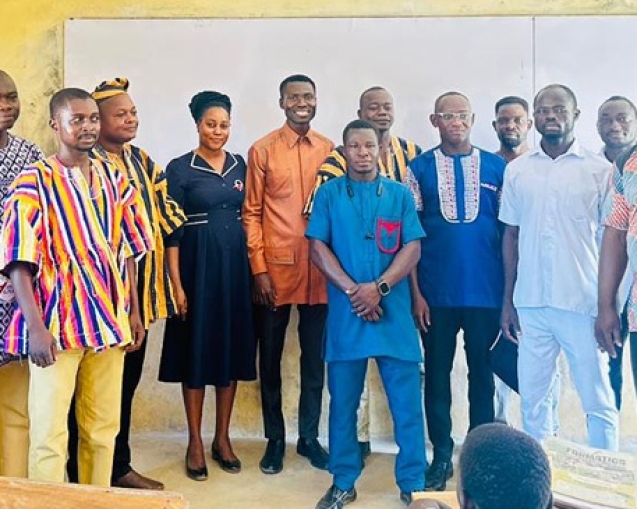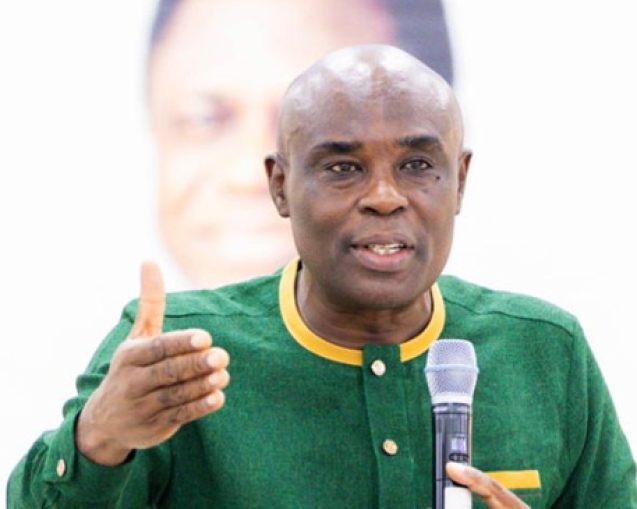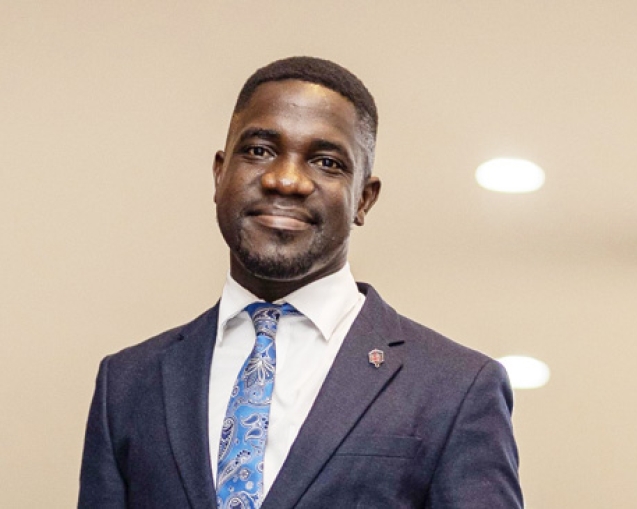“God may lay His workers to rest. His mission perseveres.” A pressing plea for mentorship within the Christian community.
The renowned words of Charles Wesley, “God buries His workmen, but His work goes on,” serve as a reflection on the enduring legacy of God’s mission despite the lifespan of His servants. This belief echoes throughout narratives emphasizing the role of intentional mentorship in present-day Christianity.
The Bible offers accounts of mentorship and the seamless continuation of God’s purpose across generations. A prime example is seen in the bond between Moses and Joshua. Recognizing the significance of grooming a successor, Moses, esteemed leader of Israel, passed on his wisdom to Joshua. In Deuteronomy 34:9, it is recorded: “Now Joshua son of Nun was filled with the spirit of wisdom because Moses had laid his hands on him. So the Israelites listened to him and followed what the Lord had commanded Moses.”
This deliberate act of mentorship ensured that Israel’s leadership and spiritual guidance remained steadfast after Moses’ passing. Joshua seamlessly carried out God’s work initiated by Moses with fervor and commitment. This continuity stands as a testament to the power and impact of mentorship.
THE ULTIMATE MODEL
Jesus Christ Himself provides the ultimate model for mentorship. His earthly ministry was marked by intentional investment in His disciples. He taught them, lived with them, and prepared them for the mission ahead. In John 14:12, Jesus assures His followers, “Very truly I tell you, whoever believes in me will do the works I have been doing, and they will do even greater things than these, because I am going to the Father.”
Jesus’ strategic and intimate mentorship enabled the disciples to carry forth His mission after His ascension. The Acts of the Apostles vividly demonstrate how the early church grew and flourished through the work of these mentored leaders, empowered by the Holy Spirit.
A MENTORSHIP EXAMPLE
Paul’s relationship with Timothy further exemplifies intentional mentorship. Paul saw potential in Timothy and took him under his wing, providing guidance and encouragement. In 2 Timothy 2:2, Paul instructs Timothy, “And the things you have heard me say in the presence of many witnesses entrust to reliable people who will also be qualified to teach others.”
This directive highlights a critical element of mentorship: the multiplication of capable leaders. Paul understood that the strength of the Christian mission depended on the continuous development of new leaders who could teach and mentor others, ensuring the perpetuation of the gospel.
One may think that the issue of mentorship only happened in the Bible and ceased there, while others may think it only happens in the business or career world. This is not the case. Mentorship is very present in the Christian world, particularly in The Church of Pentecost. For this article, I made the deliberate effort of getting some mentorship stories of great names in the church as evidence.
MENTORSHIP EXAMPLES IN THE CHURCH OF PENTECOST
In the annals of The Church of Pentecost, several prominent figures have been mentored and subsequently played pivotal roles in the church and God’s kingdom. Among them, Prophet Jonathan Edmund Ameyaw stands out as a significant figure who was called into full-time ministry in 1976 at just 26 years old. At the time, he was based in Nkawkaw but was soon invited to Koforidua by the third Chairman of The Church of Pentecost, Prophet Martinson Kwadwo Yeboah, who was the then Eastern Regional Head.
Prophet Ameyaw recalls his formative years vividly. Upon being identified as a ministerial candidate, he was invited to Koforidua by Prophet Yeboah. This was the first of many visitations before attending Bible school. During this period, he shared a room with Prophet Yeboah on numerous treks, gaining firsthand experience and invaluable insights into the ministry.
Reflecting on his journey, Prophet Ameyaw attributes his spiritual growth and ministerial prowess to the profound influence of Prophet Yeboah. He stated, “My walk with Prophet Yeboah really impacted me mightily. I picked up his prayer life, his way of studying the Bible, and his complete understanding of scripture. His manner of speaking and his approach to handling people were exemplary.” Prophet Ameyaw’s admiration for his mentor was such that he prayed for a double portion of Yeboah’s mantle, a blessing he believes he received following Prophet Yeboah’s prayer for him before his passing.
The impact of Prophet Yeboah on Prophet Ameyaw was so profound that people often remarked on the similarities in their actions. This underscores the critical importance of mentorship within the church.
Prophet J.E. Ameyaw also mentioned the late Apostle Abraham Tetteh Nartey as another influential figure who profoundly impacted him, instilling in him exemplary leadership skills.
My investigations also led me to speak with Apostle Rigwell Ato Addison (rtd.), a former General Secretary of the Church and now a trustee while in retirement from active service.
According to Apostle Ato Addison (rtd.), one person whom he was privileged to have as a mentor was the founder of The Church of Pentecost, Pastor James McKeown.
He explained that due to the relationship between Pastor McKeown and his family, the late founder of the church used to frequently visit their house. Whenever he did, he spoke on leadership and service.
Apostle Addison (rtd.) further revealed that the proper mentorship began in 1973, when Pastor James McKeown, without prior notice, gave him the opportunity to minister in the United Kingdom at a very big Billy Graham conference. He added that despite working as an accountant and not initially aspiring to go into ministry, Pastor McKeown saw potential in him and deliberately mentored him closely.
Not only did Pastor McKeown mentor him in ministry, but the mentorship even covered his marriage life and the kind of woman he would marry.
Apart from Pastor McKeown, Apostle A.B. Nartey and Prophet Yeboah were some of the great men Apostle Addison (rtd.) mentioned as mentors.
Speaking on the importance of mentorship, especially in ministry, Apostle Addison said, “If these people had not helped, the practical aspects of ministry would have been difficult. Even if you go to Bible school, you still need mentorship for the practical aspect of ministry.”
These experiences highlight the necessity for the current generation to humble themselves and seek guidance from established leaders.
For effective continuity, leaders must remain approachable and refrain from intimidating postures that scare the younger generations from approaching them. By doing so, they will ensure that these young leaders are well-prepared to carry the mantle and advance the mission of the church into the future.
AN URGENT CALL FOR CONTEMPORARY CHRISTIAN LEADERS
In our contemporary context, the call for intentional mentorship is more urgent than ever. Leaders today must recognize that their influence and leadership will eventually pass on. Therefore, investing in the next generation is not just beneficial but essential for the sustainability of the Christian mission. Modern church leaders face unique challenges, such as navigating diverse cultural contexts and managing time constraints. Addressing these challenges with practical strategies can make mentorship more effective.
Proverbs 27:17 states, “As iron sharpens iron, so one person sharpens another.” This proverb enfolds the essence of mentorship: mutual growth and strengthening through intentional relationships. Contemporary leaders are called to identify, nurture, and equip emerging leaders to ensure that God’s work continues unabated.
PRACTICAL STEPS FOR INTENTIONAL MENTORSHIP
From the experiences shared, I was able to gather some practical steps through which intentional mentorship can be established:
- Identify Potential Leaders
- Build Relationships
- Provide Opportunities
- Teach and Model
- Encourage and Correct
- Pray and Empower
“God buries His workmen, but His work goes on.” This truth should inspire contemporary Christian leaders to embrace the mantle of mentorship with intentionality and vigor. By investing in the next generation, we ensure that the work of God not only continues but flourishes. As we mentor others, we follow in the footsteps of Moses, Jesus, Paul, and countless others who understood that God’s mission is far greater than any one individual. Through intentional mentorship, we contribute to a legacy of faithfulness that will endure until Christ returns.
Written by Benjamin Mwinbeogre Zii (Photographic Officer – The Church of Pentecost)


















